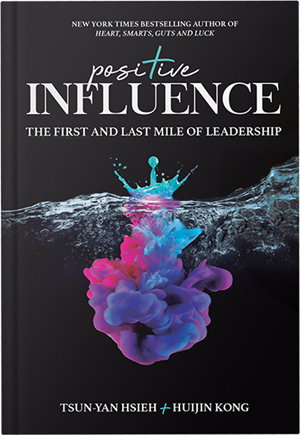Positive Influence: Book Presentation by Hsieh & Kong
On November 2, the Frank J. Guarini School of Business and the JCU Institute for Entrepreneurship held the presentation of the book Positive Influence: The First and Last Mile of Leadership (World Scientific Publishing Company, 2023) by authors Tsun-Yan Hsieh and Huijin Kong. Hsieh is a former Senior Director at McKinsey and CEO counselor, and Kong is a CEO counselor and Harvard Business School Baker Scholar.

The presentation, held in a Q&A format, started with an introduction of the speakers, who talked about their previous experience in business and leadership and their current occupation. The authors then described the central concept and goals of the book, which discusses the importance of human connections in an increasingly disconnected world. The book introduces the idea of positive influence as a way to foster mutually beneficial outcomes in our interactions with others. Drawing on their extensive experience, the authors provide readers with a guide to developing essential soft skills, such as empathy and conflict resolution. The book aims to help individuals improve their personal and professional relationships by mastering positive influence and reconnecting with their humanity.
While explaining the concept of positive influence, the authors mentioned that there are some crucial points people struggle with achieving in terms of leadership. First mentioned is an emotional takeaway we tend to have. Kong gave the example of a common situation where one wants to give constructive criticism but is afraid to do so because the other person, in the context of family, friends, or work, may be upset or disappointed by the feedback. This leads to misunderstanding and sometimes even lost opportunities. Another common struggle, according to the authors, is that we don’t try hard enough. Sometimes even when it seems there is nothing left to do, there is always a way to improve our influence on people or situations in order to achieve the result we want. Introverted people, in particular, may have problems opening up their leadership sides. Still, the authors suggest that you work on yourself and learn to bring out the extrovert part when it is needed without giving up your original nature.
The authors also mentioned the importance of showing others how much you care about specific questions to achieve a leadership position. They explained that showing your presence for others and how much you care and are involved in a situation is essential. To conclude, Hsieh and Kong highlighted the necessity of listening to our inner voice and instincts. According to the presenters, influence is the craft of our time. And one should never assume to know everything, continuously developing personal and leadership skills.
(Anastasiia Lazareva)





